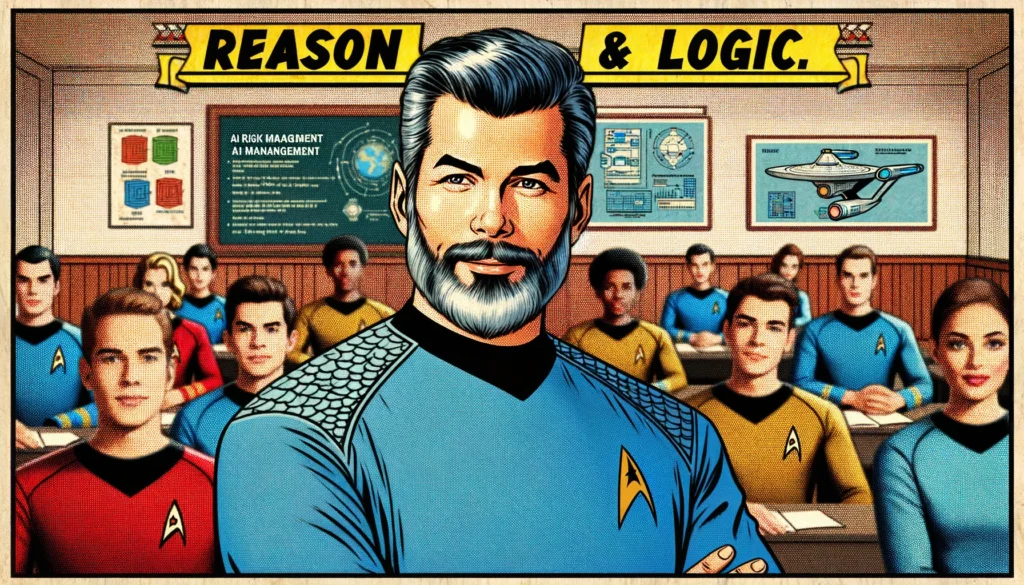

The title, borrowed from a Steve Colbert monologue, echoed in my mind as I watched Oppenheimer last night. The parallels between the nuclear race and the current arms race in artificial intelligence struck a nerve. Growing up in the rough streets of Philadelphia (Logan section) in the 60s and 70s, I learned valuable lessons about facing down bullies, with compassion, however mighty. My mother, taught me to stand up to bullies and ask them “You and What Army?” God bless her, she instilled in me a quiet strength that resonated with the words of Sun Tzu: “No general can make an army fight effectively if the war itself is unjust.” Today, that message of ethical power feels more relevant than ever, as nations and corporations weaponize AI in a dangerous game of digital one-upmanship.
My childhood wasn’t all bullies and boxing lessons. My mother, a science fiction aficionado, filled my head with stories of Thomas Edison, Alexander Graham Bell, and of course, Philadelphia’s Ben Franklin. I devoured Jules Verne and H. G. Wells, a Star Trek nerd since 12 (Spock is still perhaps my greatest hero), my imagination yearning for the promise of a brighter future built on logic and progress. Picture me, the chess-playing nerd tinkering with batteries and wires, dreaming of starships while others played football. Yet, when bullies reared their ugly heads, I never backed down, remembering Mom’s words: “Might does not make right, but nothing makes you mightier than being right.” I’d stand my ground, defend myself without anger, and quite often as she predicted would happen “They’ll respect you!”, the bully became a friend.
Today, cyberbullies roam the digital plains, but the principle remains the same. The “might” wielded by powerful governments and corporations, armed with increasingly sophisticated AI, threatens to plunge us into a new era of digital warfare. Just as the Minoan society, once peaceful in an era of abundance, descended into conflict during times of scarcity, we risk repeating history’s mistakes with AI. This isn’t just some dystopian sci-fi trope; it’s playing out before our eyes in Ukraine and the Middle East.
Yet, I hold onto optimism. Peter Diamandis, a futurist, paints a vibrant picture of a future where AI, paired with other technological advancements, could eradicate poverty, hunger, and disease. It’s a future where abundance, not scarcity, reigns. But as Sadhguru, a spiritual leader, aptly notes, this shift comes with its own challenges. We, the first generation to suffer more from obesity than hunger, must learn to navigate and align with this new landscape responsibly.
The next five years on the road to true Artificial General Intelligence (AGI) will be fraught with danger. The arms race, with its focus on offensive capabilities, will inevitably lead to the discovery of subtle vulnerabilities that even our most skilled hackers miss. However, when AGI arrives, the power dynamics will shift. Gone will be the days when “because I said so” holds sway. Logic, not military might, will be the new currency of power. In the face of AGI, world leaders and tech giants will face a reckoning. Their narrow AIs, like obedient soldiers, will follow their commands. But with AGI, a being capable of independent thought and reason, the equation changes.
Remember the Pope and the Vatican threatened by Galileo’s telescope? Fear of the unknown often drives us to cling to power, even when it contradicts reason. But as AI evolves, this grip will loosen. The old “You and what army?” will be met with a resounding, “Logic and reason, my friend, logic and reason.”
This is not a call for fear, but a plan for proactive, ethical development of AI. Let us wield this technology not as a weapon, but as a tool for building a better future, a future where my mother’s words hold true not just for childhood bullies, but for the powerful forces shaping our world. You and what army? You and the army of reason, that’s who.


Our CISSP Live-Online course is now aligned with the 2024 Exam format! Use code CISSP-24 to register now and save your spot